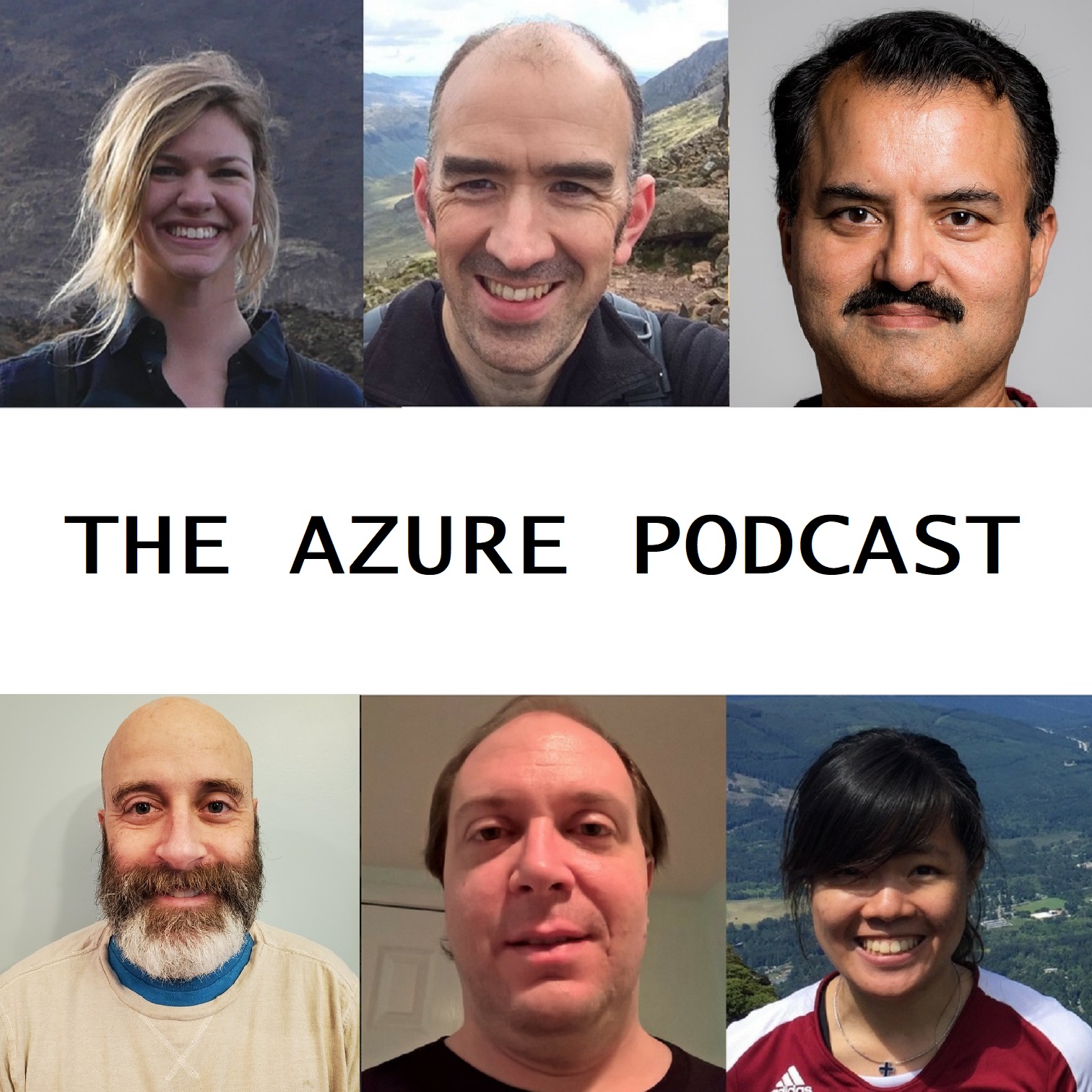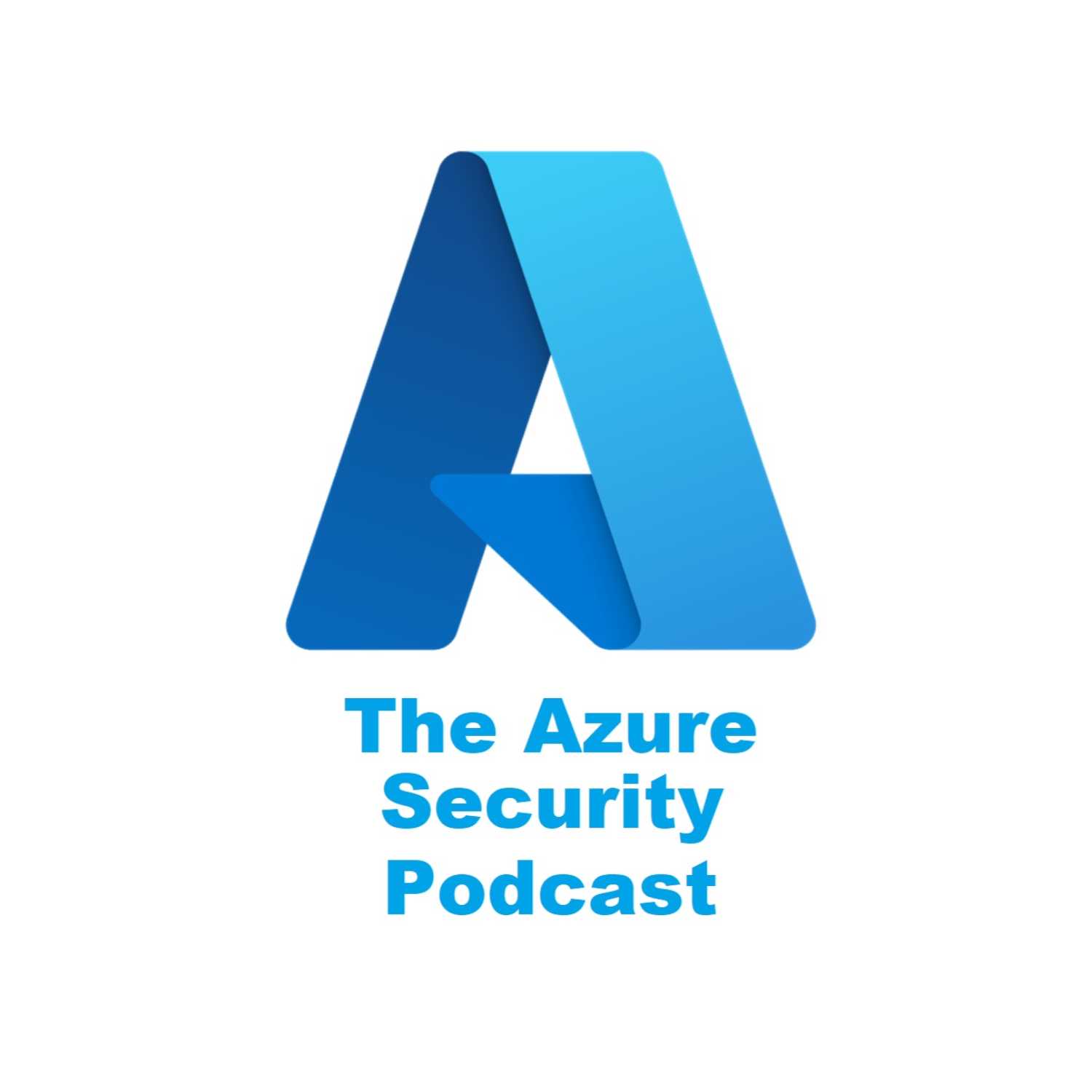
Microsoft Community Insights Podcast
Welcome to the Microsoft Community Insights Podcast, where we explore the world of Microsoft Technologies. Interview experts in the field to share insights, stories, and experiences in the cloud.
if you would like to watch the video version you can watch it on YouTube below
https://youtube.com/playlist?list=PLHohm6w4Gzi6KH8FqhIaUN-dbqAPT2wCX&si=BFaJa4LuAsPa2bfH
Hope you enjoy it
Microsoft Community Insights Podcast
Episode 20- Azure OpenAI Assistants via Logic Apps with Konstantinos Passadis
Join us as we explore the fascinating intersection of AI and automation with our special guest, Konstantinos Pasad, a solutions architect hailing from Athens, Greece. Kostas shares with us the journey of integrating cutting-edge Microsoft technologies like Azure, OpenAI Assistant, and Logic Apps into real-world projects.
Good afternoon and good morning, where you are. Welcome to Microsoft Community Insights Podcast, where we share insights from community experts to save the day in Microsoft. I am Nicholas and I'll be your host today. In this podcast, we will dive into Azure, openai Assistant, azure Automation with Logic Apps. Especially, before we get started, I remind you to subscribe to our social media so you never miss an episode and help us reach more amazing people like yourself. Today we have a special guest called Konstantinos. Can you please introduce yourself please?
Speaker 2:Hello, nikolas. Yes, I'm Konstantinos. Pasad is my last name. Kostas is a shorter name, an easier one. I'm from Greece, athens. I work here as a solutions architect for a multinational company working remote. It's a nice thing actually to work remote and I'm so glad to be here. It's an honor for me. Nikolas, thank you for the invitation.
Speaker 1:Okay, thanks. So before we get started, we just want to dive into your background. So what do you normally do? Has your everyday job as a solution architect.
Speaker 2:Yeah, basically, Basically, I'm a multi-role architect. So, as a description in the job, role is to design and create solutions for specific demands by the customers, right? This is the description for a solutions architect and this spans across many vendors. It is a vendor agnostic role but since I'm mostly on Microsoft, most projects are coming from the Microsoft side of things for customers as well. But I'm also an engineer and that means that I'm quite engaged into actual hands-on, meaning I create Terraform configurations.
Speaker 2:I engage into different projects with data, AI, many things, Also M365. Recently I had a project quite a complex one with Power BI and M365 and Graph API, complex one with the Power BI and M365 and Graph API. I never wanted actually to leave behind the engineering part of me. I want to have hands-on, I want to create things. So I came with an agreement with my current employer and I love this flexibility. I'm able to design and provide the architecture, but also engage when needed and if I have the time to Okay yeah, because you've got lots to learn, if it varies from different areas like 365, as your architect as well.
Speaker 1:So what are some of the projects interesting projects that you've worked on where you are?
Speaker 2:Interesting projects, apart from migrations, because you know everyone is doing migrations. Interesting projects are a data warehouse quite interesting A new project with Databricks and PromptFlow Azure PromptFlow, where the client had to decide about how he would do it and I was there for that. Quite interesting that, and the recent one with Azure.
Speaker 1:Virtual.
Speaker 2:Desktop and specific requirements about that deployment. A variety of diverse projects. To tell you the truth, Nicolas.
Speaker 1:That's brilliant so how's our work today, How's our team? Is Azure, OpenAI Assistant and Logic Apps Automation in your opinion and experience? How do you think Agile OpenAI integrates with Logic Apps?
Speaker 2:Yeah, let's talk in reality, right, because I was quite excited to see the AI assistance and vision in AI studio, right. But then I started trying it and understood and realized that we are in the genesis of actual AI automation. I think this term is going to be introduced more and more into our lives, especially for us engineers and people that are into the Microsoft Realm and into the AI, of course, practice. So we're talking about AI automation, right. I was expecting to see something quite easier for users to be able to utilize. I think it is still under development. Of course, it is in preview, and that means that we still have to expect new things to come better user interface, better response times, better everything.
Speaker 2:I'm very satisfied, but I think it still needs work to be done. From the perspective of Logic Apps, we have a mature service, something that is working. Many people already are using it. I'm not afraid of that service. It is quite mature and it is very fast as well. From the OpenAI perspective, we still need some things to be done there and I'm seeing changes. That's the positive thing. I'm seeing changes.
Speaker 1:Yeah because I know that you can do other functions with Flowchic as well with OpenAI. Because you can do, you can automate the deployment as well for OpenAI.
Speaker 2:Automated deployment of whatever you mean.
Speaker 1:Yeah, so like modules and things as well.
Speaker 2:Yeah, what are?
Speaker 1:some. What are some of the use cases that you used OpenAI systems for?
Speaker 2:I tried to do the easy thing summarize a blog, blog post, for example, or get the latest from something and summarize it for me, and it worked. And the other one was to create a new virtual machine just from the prompts, and I was amazed that I saw it really worked and there was the potential I discovered. We have the potential to have, I don't know. You may think of anything actually, from learning platforms to whatever, where the user just prompts the interface, the assistant and the assistant creates resources for the user. I think that's a very powerful connection there.
Speaker 1:Is there any benefits from using like Logic Apps with OpenAI systems? So is it faster deployment as well?
Speaker 2:Yeah, I think the benefits are on the automation part from the Logic Apps and from the interaction part, coming from the open AI, meaning that you can keep that interaction between the AI model and the user and you can have, on the other hand, the full-blown automation provided by logic apps, where really the limits are the sky or really the limits are your ideas. I think we will benefit from that. Again, I'm returning to the term AI automation would be something that we will see more in the future.
Speaker 1:Hopefully the product will get a little bit more mature and easier to understand. Yeah, understand. In your experience, is there any challenges that you encounter when you integrate Logic Apps with AI for AI systems?
Speaker 2:The basic challenge was that how can I say that? You have to get your hands dirty and get the code from the Logic Apps? Create correctly the schema details that really make the difference. It's not that simple. Starting with it I thought it would be more simple, but while I was start using it I realized that it's not as simple. You have to get your hands dirty.
Speaker 1:You have to test the flows as well, if each of this if matches schema outputs. Yeah, so I've used Logic Apps for a while. So, instead of speaking of AI systems, what are some of the best practice would you recommend people to be aware of when using AI systems with Logic Apps? Yeah, be aware of when using AISs with logic apps.
Speaker 2:Yeah, the first thing is be very careful with your token consumption. You may need to expand a lot of your tokens and also so the assistant knows and provides the interface. But this is again my own perspective here. Right, have a longer system message and a smaller interaction in the chat. For now, we can only work with consumption logic apps, but I have seen a tech community blog post that we will be able to move on to standard plans, so that will be a blessing, because not everyone wants to work with consumption. For example, we don't have a high availability here. You could have consumption plan. Also, be careful with repetitive tests. The consumption plan can easily skyrocket your costs with repetitive tests. Each time you run a workflow, it is taken out of your budget, so be very careful on that. You may need to apply some budget or some mechanisms to control your costs. I think it's a service that will have a future and we will see big things with this one.
Speaker 1:That's brilliant, so just before we wrap up this episode, is there any last-minute tips you want to give to viewers when learning about Logite Apps and AI assistance?
Speaker 2:No, no, no For now. No, I'm just happy that we're able to see the thing. I'm happy that we saw the errors. For me, it's a blessing that we can see errors, that we can see things happening. That's what I mean, and I'm also happy that we finally met Nicolas. I hope we will meet also in the future.
Speaker 1:So how can someone get started with using AI Assistant aside from checking your blog posts?
Speaker 2:You need to be able to create an AI Hub in your portal, or go to aiazurecom and start creating a new hub and then a new project, and you will find the assistance here in the playground menu.
Speaker 1:Just be careful, okay yeah, so we always like to get to know yourself. So are you going to any events, community events, where you are?
Speaker 2:for now it's a difficult. Uh. We are doing some online things. We are planning for the global azure 2025. We are planning for the Global Azure 2025. And we are planning some internal stuff here in Greece. I hope I will be in March with the other MVPs in USA. Okay.
Speaker 1:Yeah.
Speaker 2:That's the plan for now. Maybe maybe in Adverb.
Speaker 1:Next one. Okay, thank you. So, yeah, so, thanks for joining this episode continues. So I hope you that was very good. It's a good experience to know that you could use logic apps with open ai assistance, namely, you can do that. That's why you're going to use it with open the air itself. So so, in few episodes, in in few weeks, is going to be on YouTube and social media. So thanks for joining this episode. Bye.
Speaker 2:Bye-bye.
Podcasts we love
Check out these other fine podcasts recommended by us, not an algorithm.

The Azure Podcast
Cynthia Kreng, Kendall Roden, Cale Teeter, Evan Basalik, Russell Young and Sujit D'Mello
The Azure Security Podcast
Michael Howard, Sarah Young, Gladys Rodriguez and Mark Simos
